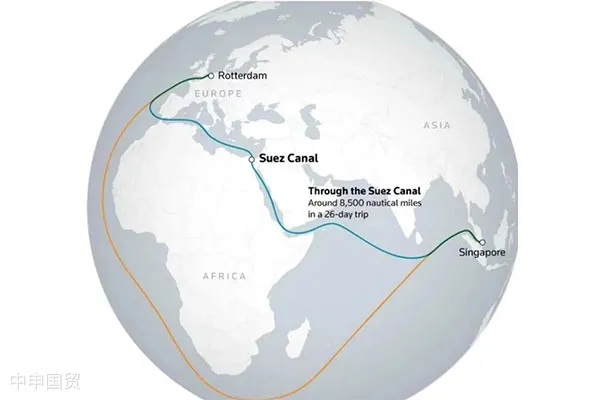- Shanghai Zhongshen International Trade Co., Ltd. - Two decades of trade agency expertise.
- Service Hotline: 139 1787 2118
Recently, Danish media Shipping Watch reported that some of the worlds top shipping companies have reached an agreement with Yemens Houthi rebels, allowing their vessels safe passage through the critical Red Sea route. Sources revealed that talks have been held to ensure specific ships pass unharmed. The Houthis demanded that shipping companies neither transport Israeli goods nor call at Israeli ports.

This agreement could mean shorter shipping distances between Asia and Europe, a surge in vessel supply, and potentially lower freight rates. Senior Houthi leader Mohammed Ali al-Houthi stated that ships declaring no ties to Israel would not be attacked. The Houthis warned that vessels falsely declaring and then heading to Israeli ports would be blacklisted and seized upon their next attempt to transit the Red Sea.
According to Middle Eastern sources, some shipping companies have reached agreements with the Houthis to ensure safe passage for their vessels in the Red Sea. However, Maersk and German shipping company Hapag-Lloyd stated they have not reached any agreements with the Houthis regarding Red Sea transit, while Swiss logistics firm Kuehne + Nagel noted that most major shipping companies continue to avoid the Red Sea route.
Market analysts speculate whether shipping companies are willing to sign reciprocal agreements with the Houthis in exchange for freedom of navigation. Lars Jensen of Vespucci Maritime noted that these agreements may be a product of regional tensions, while Philip Damas of Drewry suggested that container shipping could face a shortage crisis in the coming weeks due to increased trade volumes ahead of the Chinese Lunar New Year.
Data shows that nearly 15% of globalMaritime Transportationtrade passes through the Red Sea, including 8% of global grain trade, 12% of seaborne oil, and 8% of global LNG trade. Shipping companies rerouting via the Cape of Good Hope has increased voyage distances, affecting cargo transport efficiency. Drewry estimates that up to 822 vessels or approximately 10 million containers have been impacted by attacks and diversions.
Related Recommendations
? 2025. All Rights Reserved. 滬ICP備2023007705號(hào)-2  PSB Record: Shanghai No.31011502009912
PSB Record: Shanghai No.31011502009912









